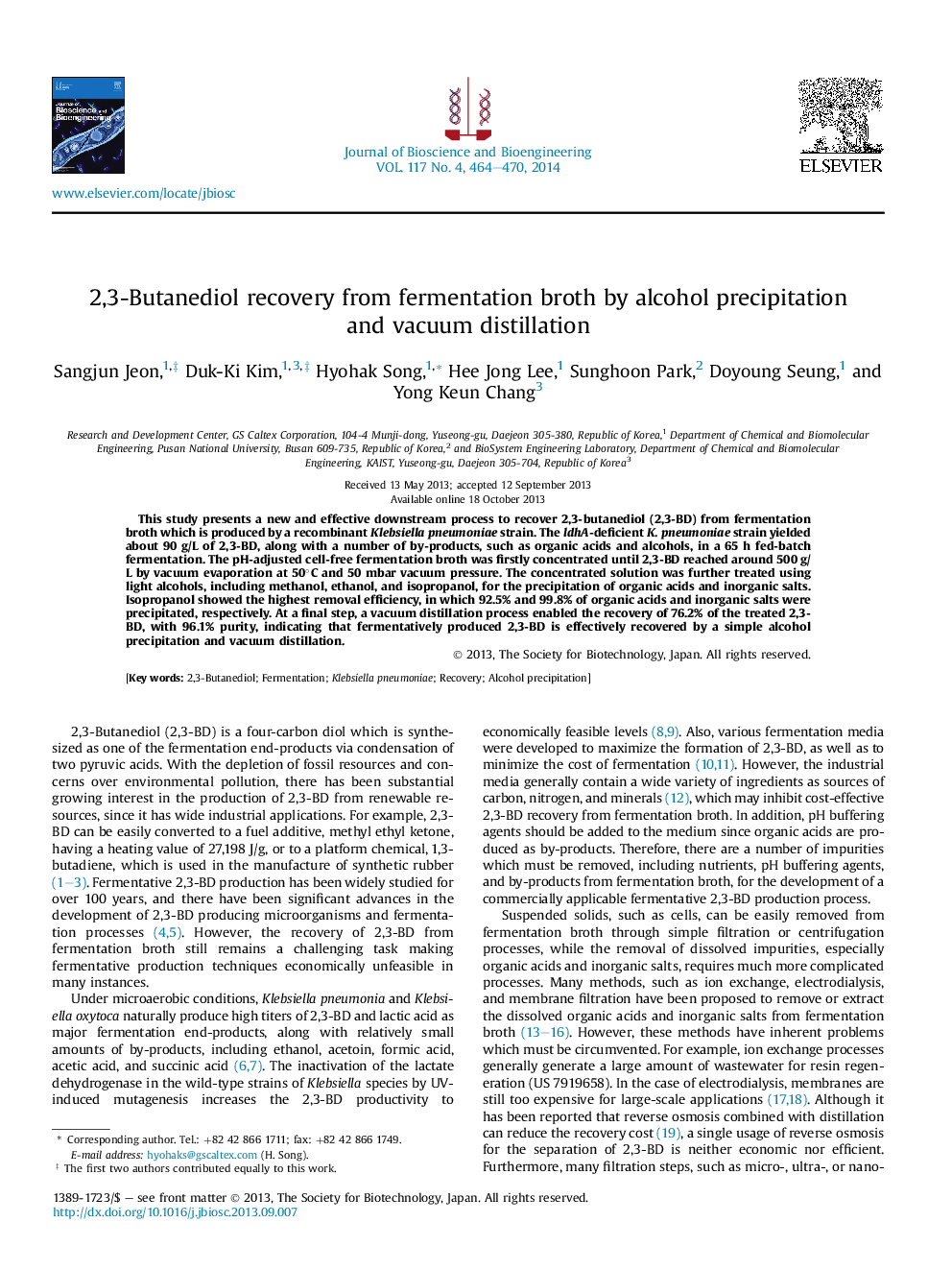| Article ID | Journal | Published Year | Pages | File Type |
|---|---|---|---|---|
| 20746 | Journal of Bioscience and Bioengineering | 2014 | 7 Pages |
•We made a 2,3-BD over-producing Klebsiella pneumoniae strain by deleting the ldhA gene.•The ldhA-deficient mutant produced 90 g/L of 2,3-BD in a fed-batch fermentation.•IPA effectively removed organic and inorganic salts from the fermentation broth.•Then, we could recover 2,3-BD with 96.1% purity by a simple distillation process.
This study presents a new and effective downstream process to recover 2,3-butanediol (2,3-BD) from fermentation broth which is produced by a recombinant Klebsiella pneumoniae strain. The ldhA-deficient K. pneumoniae strain yielded about 90 g/L of 2,3-BD, along with a number of by-products, such as organic acids and alcohols, in a 65 h fed-batch fermentation. The pH-adjusted cell-free fermentation broth was firstly concentrated until 2,3-BD reached around 500 g/L by vacuum evaporation at 50°C and 50 mbar vacuum pressure. The concentrated solution was further treated using light alcohols, including methanol, ethanol, and isopropanol, for the precipitation of organic acids and inorganic salts. Isopropanol showed the highest removal efficiency, in which 92.5% and 99.8% of organic acids and inorganic salts were precipitated, respectively. At a final step, a vacuum distillation process enabled the recovery of 76.2% of the treated 2,3-BD, with 96.1% purity, indicating that fermentatively produced 2,3-BD is effectively recovered by a simple alcohol precipitation and vacuum distillation.
